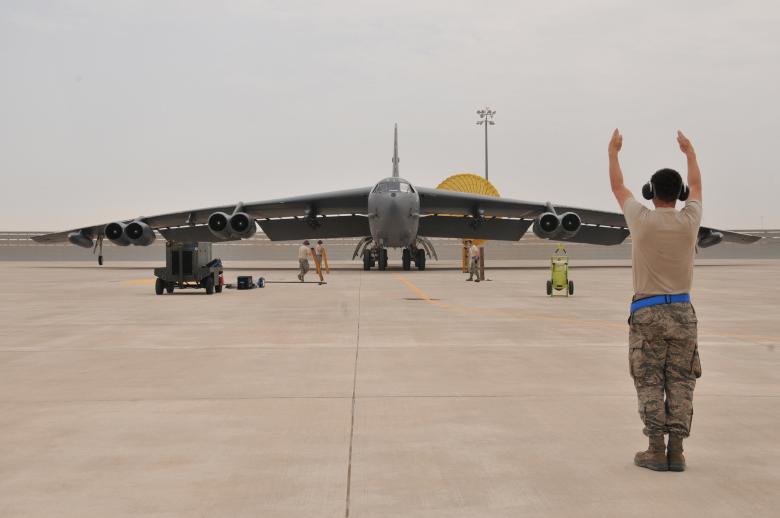Hallowed be Allah! (Subhan Allah)
After it spent months attacking and warning against Donald Trump becoming a president. After spending six months in cautioning against his administration and disastrous policies, and after attacking its neighbors for strengthening their relations with the American ally, the Qatari policy towards the US made a 180-degree turn.
The US has become the ally that Qatar can’t do without. All of this happened following the crisis that erupted when four Arab countries severed their ties with Qatar.
Doha’s strategy changed in a blink of an eye. Principles were lost without any prior warning and all of its criticism against Saudi Arabia, Egypt, the United Arab Emirates and Bahrain for their partnership with the strategic ally was forgotten.
Qatar is now doing more than what it used to criticize its neighboring countries of doing.
It has gone beyond voicing its reservations to the Arab-Islamic-US Summit that was held in Riyadh and is now throwing itself in the American lap, which has become its safe haven. The US president in his first official statement on the fate of the Al Udeid US base, said there are a great number of countries ready to embrace the US troops should they be transferred from Qatar.
Of course, every country has the right to look for its best interests. At the same time, it is not strange that Doha changed its principles in a blink of an eye because it knew full well that it is in a weak position following its latest isolation. It has realized that the pressure against it has grown too much and the US “eye” is now monitoring its every move and game.
The US administration’s days of tolerance of the Muslim Brotherhood during former President Barack Obama’s presidency are long gone now, especially after Qatar had banked on Washington to continue on looking the other way to its funding and empowering of terrorist groups. This primarily includes the Muslim Brotherhood which Doha used to and is still financing and supporting.
Yet, amending relations with Washington during Trump’s presidency won’t be as easy as Qatar thinks, unless it changes it creed that developed immensely during his predecessor’s tenure.
Washington believes that Qatar should be a target in any counterterrorism effort. After Trump’s inauguration and for the first time since the September 2001 attacks, the US now has a greater chance in ending terrorism and its sources more effectively in the Middle East.
The Washington Post says US efforts to combat terrorism will force Washington to reconsider its foreign policies and alliances, especially with countries that are believed to be supporting terrorism and even if they host US military bases, such as Qatar. Washington must now remember who its primary allies in the region are, such as Saudi Arabia, the world’s main oil market leader and one of the biggest investors in US Treasuries.
It was significant that the Washington Post, while commenting on US Secretary of State Rex Tillerson’s visit to Qatar, which was aimed at reaching a joint agreement on ending terrorism financing, something which Doha has been slow in committing to, sarcastically described it as “entrusting the wolf to protect the sheep.”
One might say that after some 40 days of the four countries’ boycott that they have reached the halfway mark with Qatar and halted its disruptive project in the region, while keeping in mind that all of this happened and Doha has still not committed to the demands made to it.
Yet, the international attention and focus on all of its declared and hidden policies has prompted Qatar to think a thousand times before taking any step that would confirm that it is guilty of what the world had previously turned a blind eye to.
For instance, now, Qatar cannot pay half a billion dollars to extremist militias in Iraq as it did in the past to release its 26 captives. It will not be able to strike a deal with al-Nusra Front and displace residents of four Syrian towns. It cannot make a deal with an internationally classified terrorist group to release the nuns.
There are so many things that Qatar will not be able to do anymore.
Clearly, the current crisis with Qatar is heading towards temporary separation. The four countries calling for combating terrorism are not in a hurry to get rid of a destructive Qatari creed that has been operating for 21 years.
The ball is in Qatar’s court now. It should either rehabilitate its political creed and become a reasonable state like any other or it has to endure this long political and economic isolation, which only it can end.
Contrary to what it believes, Qatar’s turn to Washington and its attempt to return to an alliance with it, similar to what the Gulf states and Egypt did before it, will pave the way for rehabilitating its regime and not bypass what the four countries are demanding.
